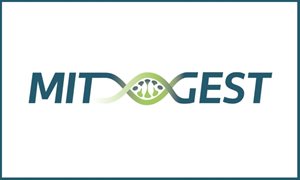
Christian Gilissen and colleagues, theme metabolic diseases, published a study titled systematic analysis of short tandem repeats in 38,095 exomes provides additional diagnostic yield in Genetics in Medicine.
Purpose
Expansions of a subset of short tandem repeats (STRs) have been implicated in approximately 30 different human genetic disorders. Despite extensive application of exome sequencing (ES) in routine diagnostic genetic testing, STRs are not routinely identified from these data.
Methods
We assessed diagnostic utility of STR analysis in exome sequencing by applying ExpansionHunter to 2,867 exomes from movement disorder patients and 35,228 other clinical exomes.
Results
We identified 38 movement disorder patients with a possible aberrant STR length. Validation by polymerase chain reaction (PCR) and/or repeat-primed PCR technologies confirmed the presence of aberrant expansion alleles for 13 (34%). For seven of these patients the genotype was compatible with the phenotypic description, resulting in a molecular diagnosis. We subsequently tested the remainder of our diagnostic ES cohort, including over 30 clinically and genetically heterogeneous disorders. Optimized manual curation yielded 167 samples with a likely aberrant STR length. Validations confirmed 93/167 (56%) aberrant expansion alleles, of which 48 were in the pathogenic range and 45 in the premutation range.
Conclusion
Our work provides guidance for the implementation of STR analysis in clinical ES. Our results show that systematic STR evaluation may increase diagnostic ES yield by 0.2%, and recommend making STR evaluation a routine part of ES interpretation in genetic testing laboratories.
Related news items

Hans Spelbrink is beneficiary of the MITGEST Doctoral Network which receives 2.6 million euros funding (PhD positions available)
27 September 2022EU has granted the new Doctoral Network “MITGEST” (Quality Control of the Mitochondrial Gene Expression System in Health and Disease), of which Radboudumc is one of the partners, with 2.6 million euros of funding under the Marie Sklodowska-Curie Actions.
go to page
Towards a better understanding of Leigh Syndrome pathology and intervention published in Brain
8 December 2021 Melissa van de Wal and colleagues recently published a comprehensive review in the journal Brain on how Ndufs4 knockout mouse models have been used to unravel the pathomechanism of Leigh Syndrome. go to page
New genetic defect links cell biology and protein glycosylation
10 November 2021 Peter Linders, Dirk Lefeber and Geert van den Bogaart together with international colleagues have recently reported on novel cell biological insights, by identifying a genetic disorder in syntaxin-5 which allowed to unravel a new mechanism regulating intracellular transportation. go to page
RIMLS awards call for nominations
19 October 2021 RIMLS awards several prizes to stimulate and honor our (young) researchers. Upcoming awards are Supervisor of the Year, Best Master Thesis, Best Publication, Best Image and more. Send your nominations now before 24 November 2021. go to page
Young Investigator Award for Alex Garanto
16 September 2021 Alex Garanto has been honored with the 2021 Mary Ann Liebert, Inc. publishers Young Investigator Award go to page
